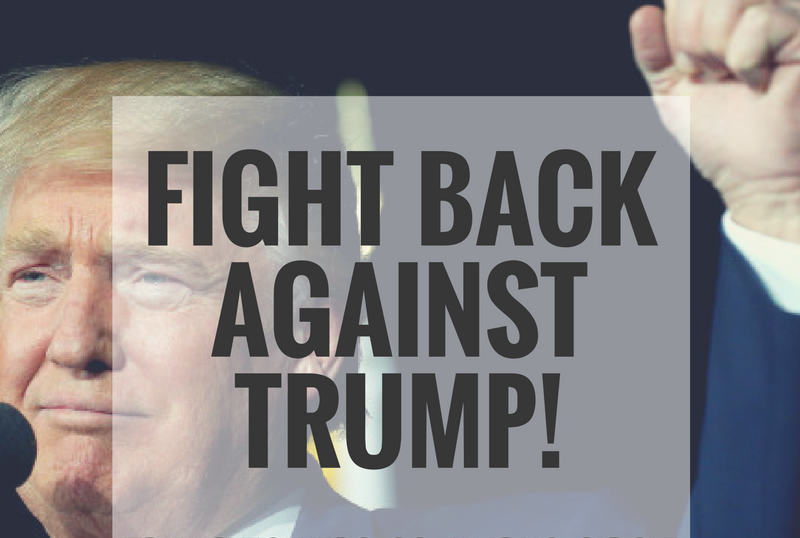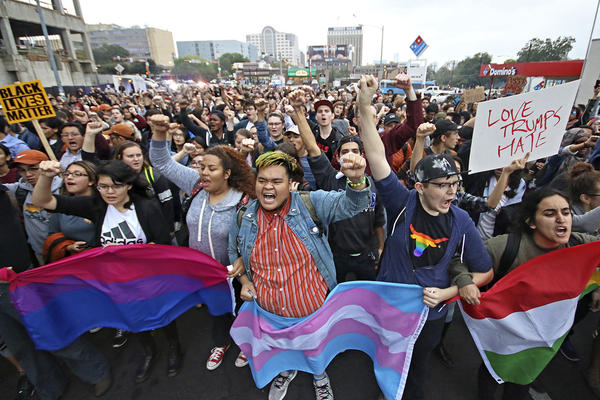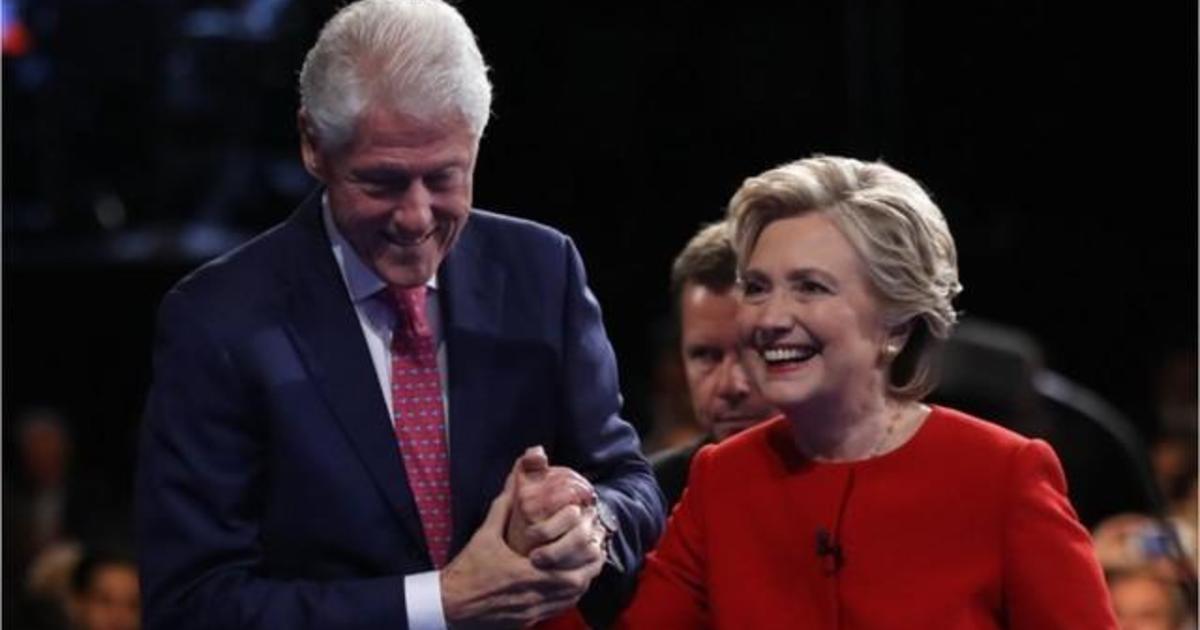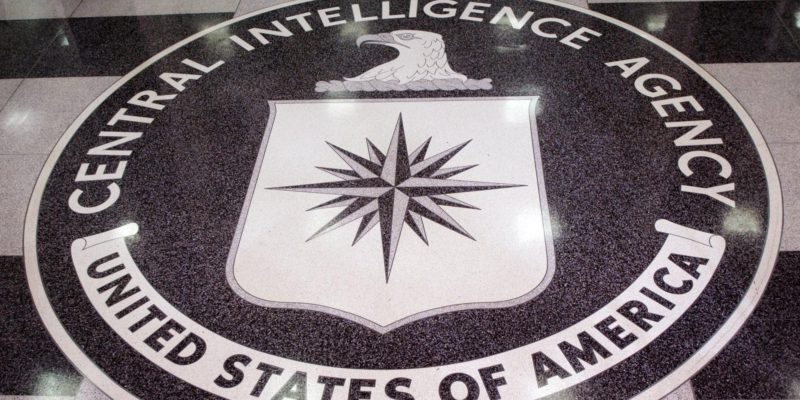Facing a choice between the two most hated politicians in the country, countless people are looking for an alternative in the presidential election. Millions are giving serious consideration to third-party candidates, and the most popular is the Libertarian Party’s Gary Johnson, who was the Republican governor of New Mexico from 1995-2003. Along with his running mate Bill Weld, also a former Republican governor, Johnson is running a campaign that may be a challenge to the two-party system, but is by no means a challenge to the capitalist system of exploitation and oppression.
The political regime that has managed the affairs of the ruling elite is cracking under the immense pressure of economic stagnation and geopolitical turmoil. Even the winner-take-all electoral blackmail that is relatively unique to the United States is having trouble keeping these growing contradictions from boiling over. This trend is especially pronounced among young people. A recent McClatchy poll found that Clinton and Trump combined have the support of 50 percent of voters under 30, while 39 percent support a third-party candidate.
The destabilization of the traditional party system is taking place not only in the United States, but also in many other imperialist countries as the world order goes through fundamental renovations. After adjusting for those who are undecided, the preferences of young voters is approximately the same as the electorate of Spain – with 55 percent supporting the “systemic” parties and the rest opting for outsiders.
And also as in Spain, a large portion of that protest vote is being captured by deceitful right wing forces. In Spain it is the hip, supposedly corruption-free party called Citizens, and in the United States it is called the Libertarian Party.
Many people are understandably eager to cast their vote for the most viable candidate outside of the two-party system, or find something to agree with when it comes to the Libertarians’ rhetoric on foreign policy or the war on drugs. But being an alternative is not in and of itself politics. A look at Gary Johnson’s record and positions shows that he fundamentally represents more of the same.
Missing the point on prisons and police
If the Libertarians were searching for an egregious example of big-government overreach to rally against, the regime of police state control that terrorizes oppressed communities – especially the unrelenting war against Black people waged at the local and federal level – would be the obvious issue. But for some mysterious reason police brutality and mass incarceration are an afterthought compared to the ire generated by taxation and welfare.
When asked by Reason magazine how he would reach out to the Black Lives Matter movement, Johnson replied that, “I really believe that at the heart of the militarization of police has been the War on Drugs.” This is false. The war on drugs is a pretext, but the heart of the issue is white supremacy and the neo-liberal iteration of the capitalist system.
Mass incarceration and the attendant intensification of police terrorism began as the industrial core of the U.S. economy was hollowed out and moved overseas in search of greater rates of exploitation and an all-out offensive was launched against the rights and social programs won by poor and working people over generations of struggle. A significant section of the working class – primarily Black and Latino – was rendered obsolete under this new arrangement, consigned to permanent unemployment or underemployment in low-wage service sector positions. Alongside incarceration, police occupation of oppressed communities, which have historically been the sites of the most heroic resistance to the system, took on even greater significance and was further militarized as a result.
In other words, mass incarceration and police brutality are natural outgrowths of the so-called free market system the Libertarians champion. It is necessary so that those who sit atop this system can maintain both their wealth and power.
But Johnson’s deficiency is not only ideological – as a former governor we can look at his actions in office to discern his true orientation. As the people rise up against racism, Johnson has played dumb. “I think we’re coming to an understanding with regards to Black Lives Matter … We’ve had our heads in the sand over this,” he said in July. That same month, he claimed that, “We weren’t into the egregious police shootings from ’95 to 2002 [in New Mexico, when he was governor]. It really wasn’t happening.”
This is an outrageous distortion of the truth. The largest city in the state he led for eight years has one of the most notoriously violent police forces in the country – the Albuquerque Police Department. Its killing spree was in full swing during Johnson’s tenure as governor. For instance, in 1998 Larry Walker, a suicidal man whose family called the police for help saving his life, was killed when instead a SWAT team shot him from 43 feet away after an officer exclaimed “let’s go get the bad guy!”
The virtual enslavement of prisoners in penitentiaries run by for-profit corporations is one of the most odious features of mass incarceration. As governor, Johnson’s answer to overcrowding was not to release people, but to authorize the construction of two new private prisons. He defended his actions by saying, “Never in that process did I experience any pressure to ‘fill beds’ in the private prisons we built … Anyone who has actually overseen a prison system and dealt with the politics thereof knows that the real pressure to fill cells comes from the public employees’ unions intent on keeping their jobs.”
First of all, calling the prison guards’ associations “public employees’ unions” is insulting – guards and cops are not workers and so their organizations cannot be accurately called unions. Moreover, this is akin to Hillary Clinton saying that her donations from Wall Street and paid speeches to Goldman Sachs will have no impact on her policies if elected. If a corporation’s bottom line depends on the imprisonment of huge numbers of people, then they will do everything in their power to ensure that huge numbers of people are imprisoned.
Imperialism is a system, not a policy
In the same vein, if profitability hinges on the subjugation and exploitation of the oppressed countries of the world – which is the case in one way or another for all major corporations – then the capitalist state will have no choice but to facilitate this plunder. Imperialism is a stage in the development of the capitalist system, not a policy that some politicians support but others oppose.
The Johnson/Weld campaign website sums up the Libertarian foreign policy orientation as, “No Nation Building. No Policing the World. More Security Here at Home.” Not only is “nation building” a ludicrous way to describe the destruction and wholesale slaughter carried out by the U.S. war machine around the world, but it is also totally devoid of any sense of international solidarity.
It is true that Johnson is on record opposing the wars on Iraq and Libya, but he does so from fundamentally the same angle as Donald Trump’s chauvinistic “America First” isolationism. Socialists, on the other hand, fight for the right to self-determination and believe that working and oppressed people all around the world are our sisters and brothers.
As such, his supposedly anti-imperial position on international relations is shaky and uneven. When the Los Angeles Times editorial board asked Johnson “[H]ow do you feel about what looks like a long-term campaign of using drones all over the world, not just in Iraq and Syria?” Johnson expressed his opposition to drone strikes in general, but began his answer by saying, “Well, you never say never to anything, and I’m looking to get elected president of the United States, so never say never to anything.”
Furthermore, Johnson is unwilling to take on the ideology used to stir up public support for U.S. imperialism’s wars of aggression. Just like Hillary Clinton folded to the extreme right wing by using the term “radical Islamic terror” in the wake of the Orlando massacre, after the terrorist attack in Paris in November 2015 Johnson said that, “It is time that we have an open, honest dialogue about the politics of Sharia law. It is time that we face the reality that, while Islam is a faith that must be granted the same freedoms of religion as all others, Sharia is a political ideology that cannot coexist with the constitutional and basic human rights on which the United States is founded.” This is a nod to the far-right “creeping Sharia” campaign that has led to hysteria-induced ballot measures and bills in several states.
Eviscerating workers’ rights and livelihoods
At the core of Libertarian ideology is a fanatical commitment to removing all safeguards and reforms blunting the unmitigated exploitation of labor by capital. In their vision, the “market” determines all matters pertaining to production and allocation. The market is presented as a neutral arbiter standing above society, but it is in fact dominated by a tiny clique of the unbelievably wealthy and this is just a prettified way of pledging allegiance to their unrestrained dictatorship.
The anti-worker Trans-Pacific Partnership has provoked so much outrage that even a loyal servant of Wall Street like Hillary Clinton has been forced to state her opposition to it. Johnson, on the other hand, said that, “It is my understanding that the TPP does advance free trade … Is it a perfect document? Probably not. But based on my understanding of the document, I would be supporting it.”
Prisons are not the only thing Johnson wants to privatize. In 1999, he was praised as “America’s boldest governor” by right-wing magazine The Economist for his early support of school vouchers. This was an early push in the offensive against public education that led to the current “school choice movement” that seeks to promote the proliferation of charter schools.
Libertarians view government debt and budget deficits as abhorrent, but refuse to remedy the situation by increasing taxes on the wealthy or corporations. Instead, they turn their sights on social programs that aim to meet some of the basic needs of the people.
A reporter embedded with the Johnson campaign captured the candidate’s satisfied ramblings following an interview in July where he (artfully, in Johnson’s own opinion) called for the abolition of social programs, “Man, we got it all out there. Entitlements, ‘Hey, it doesn’t work without entitlements.’ ‘What, you think the government with an infrastructure jobs program is gonna change the world? Uh-uh, I don’t think so.’” “Entitlements” is the euphemism favored by right wing politicians to describe social security, Medicaid, unemployment benefits and other vital programs.
Disgust and opposition to the two-party system is exactly the correct instinct when faced with a nauseating and false choice between Donald Trump and Hillary Clinton. But it is not enough to simply vote against something – to rally the support of the millions of people who are under the boot of this system we need a vision for a new world where workers and oppressed people have control over the government and the economy. That is why the Party for Socialism and Liberation is running Gloria La Riva for president, and why we need to reject the right wing campaign of Gary Johnson.






